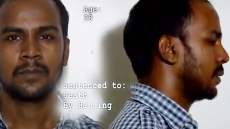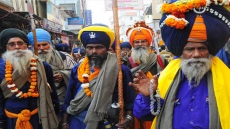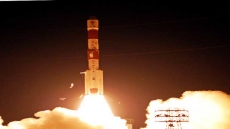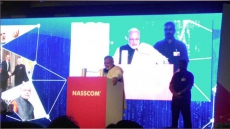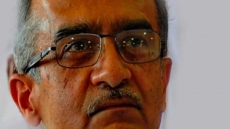It's almost a month since British Foreign Secretary Philip Hammond visited India, a few days before Mahatma Gandhi's statue was unveiled at Parliament Square in London in the presence of Union Finance Minister Arun Jaitley.
Call it a coincidence, the visit was appropriately timed on March 12, the day 85 years ago when Gandhi launched his mass satyagraha movement from Sabarmati in Gujarat to the banks of the Dandi to break the unjust salt law that, to a large extent, signalled the beginning of the end of the British Raj in India. It was at this point of time Gandhi drew world sympathy in this (non-violent) battle for 'right against might'.
One could argue that though the mass civil disobedience movements - a term borrowed by Gandhi from Henry David Thoreau, a 19th-century American writer and used as 'satyagraha' in the Indian context - led by Gandhi to end the monopoly of the British Empire upon the Indians did not produce a constitutional change, it demonstrated that ordinary Indians had the power to drive events. In several parts of India, nationalists succeeded in weakening the forcefully imposed/established structures. Moreover, people began to defy - as well as challenge - the injustices.
Peter Ackerman and Jack DuVall write in their book, "A Force More Powerful: A Century of Nonviolent Conflict": "While the campaign did not wreck the raj, it did succeed in shredding the legitimacy of British rule. For over a century the regime had represented itself as benign, standing for sound economy and gradual reform - and likely to bring home rule in the long run.
As long as Indians went about their business and cooperated with its laws and institutions, the British could maintain this façade. But civil disobedience shattered it".
And the greatest example of this was the Salt March that brought people from different classes and regions - wherever Gandhi made his presence and from further distance too - and forged a durable link among Indians who put aside their personal interest to promote national interest. Mahatma Gandhi became the embodiment of national purpose for millions of Indians who nonviolently fought for 'truth force' vis-à-vis 'brute force'.
And here was Philip Hammond addressing the media on Britain's growing relations with India.
Referring to the unveiling, Hammond said: "That statue will be a tribute to the inspiration Gandhi provided not only to India but to the people of the world", adding, "It is fitting that the man (Mahatma Gandhi) who founded the world's largest democracy should look across the Square at the world's oldest parliament (in Britain)".

This would be a befitting acknowledgement - rather than tribute - to a man who as an 18-year-old touched upon a land which threw before him an entirely different world (19th century England).
Never in his life, had he seen something so splendid, so ornate and so polished that made the young Mohandas Karamchand Gandhi abandon his habitual modesty to present himself as an English gentleman, what author Robert Payne in his book "The Life and Death of Mahatma Gandhi" calls as an 'infatuation', which ultimately would pass.
It cannot altogether be denied that the British recognized the good points in a rebel and it was worthy. As the English journalist, novelist and educator Edmund Candler recorded in 1922: "Gandhi's honesty of purpose has been generally admitted by the Indian Government, by the Viceroy, as well as by the Secretary of State. The rage of a certain section of the British press with Mr. Montagu, when he admitted that Mahatma Gandhi was his friend, is understandable".
In the 67 years - after Gandhi's death - that separate us from him, humanity has witnessed breathtaking achievements in science and technology and even the texture and rhythm of our life have been altered. Some see it as a model of development; others perceive it as a race against time.
As India celebrates the 100 years of Gandhi's return from South Africa (1915-2015) and gears up for the centenary celebrations of the historic 'Champaran Satyagraha' in 2017, the satyagrahi Gandhi seems to be little awed by the dynamism of the events that are to unfold as the clock progresses. For the Gandhi who returned in 1915 saw India as a whole and not in parts and fragmented, if not externally to the world, yet too demanding.
The culture wars occurring in the multicultural societies - and India is an integral part - is just a microcosm of the global conflict. No country today seems to have been left untouched by the phenomenon of violence. The world - because of frequent confrontations and violent eruptions despite the rapid and globalised progress - has become a one physical unit, but not an integrated entity.

While rediscovering - and more so repackaging Mahatma Gandhi in this globalised era - it will be apt to realize - and adhere - that the spirit and legacy of Gandhi demand bold, courageous and connected initiatives which reach the last man in society.
The spiritual Gandhi has today become not only a national leader but a missionary of civilization. Or is it that the repackaging has transformed this mass leader into a façade, which only exists but dissipates?
Also to the unimaginative - or the disbelievers - the Mahatma remains insincere or insignificant. Can a remoulded Gandhi be a guiding force to the East and the West alike, as the crisis of civilization sharpens its edge and as Gandhi stands as a significant figure at the world's crossroads?
